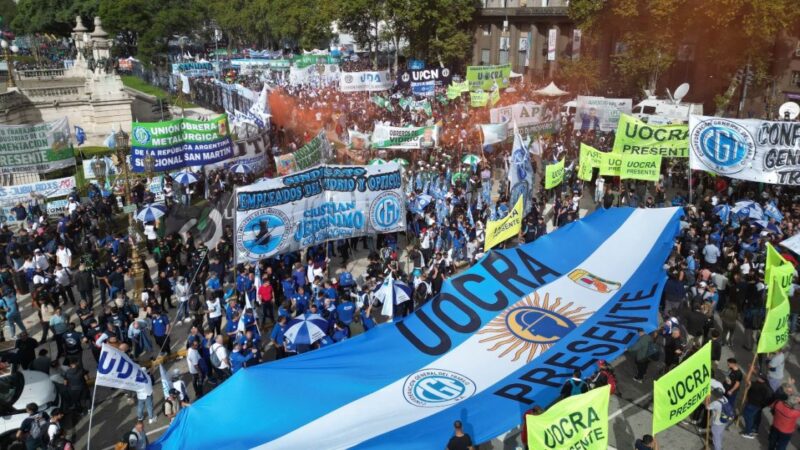Thousands of Argentines filled the streets of Buenos Aires on Wednesday in a mass protest against austerity measures, ahead of a 24-hour general strike set to begin at midnight. The walkout marks the third major strike during President Javier Milei’s 16-month tenure, as the country awaits confirmation of a new loan from the International Monetary Fund.
The demonstration, which remained peaceful, served as a precursor to Thursday’s strike, organized by labor unions opposing Milei’s aggressive cost-cutting policies, often described as “chainsaw” austerity.
Milei, who once brandished an actual chainsaw during his campaign as a symbol of deep government cuts, has followed through on promises to drastically shrink the state. His administration has eliminated subsidies for transport, energy, and fuel, laid off tens of thousands of public workers, and dismantled several government departments.
While these measures have produced Argentina’s first budget surplus in over a decade and helped slow inflation, they have also pushed the country into recession and worsened poverty levels—though official indicators suggest a slow improvement.
“The cost (of austerity) for vulnerable sectors is infinitely higher than is suggested by the monthly inflation index,” said Hector Daer, secretary general of the CGT labor confederation.
The strike is expected to grind much of the country to a halt, affecting schools, banks, trains, and air travel. National airline Aerolineas Argentinas, a target for privatization under Milei’s government, canceled 258 flights, disrupting travel plans for approximately 20,000 passengers. Buses, however, will continue to operate.
Despite one of the highest inflation rates in the world, Milei’s administration has managed to bring annual inflation down from 211 percent in 2023 to 66 percent, according to recent data. But unions argue that these macroeconomic improvements do not reflect the hardship experienced by ordinary citizens, whose purchasing power has significantly eroded.
Pensioners—among the most affected by austerity—led a peaceful demonstration in Buenos Aires earlier in the day, supported by labor groups and social organizations. This protest followed a violent March 12 rally that left 45 people injured after being joined by football fans.
Milei maintains that the austerity drive, coupled with financial support from the IMF, will allow his government to repay debts to the central bank and “exterminate” inflation—a central promise as mid-term elections draw closer and his party aims to expand its congressional presence.
Argentina already owes $44 billion to the IMF. On Tuesday, the lender confirmed it had reached a preliminary agreement with the government, with final approval from its executive board expected “in the coming days.”




